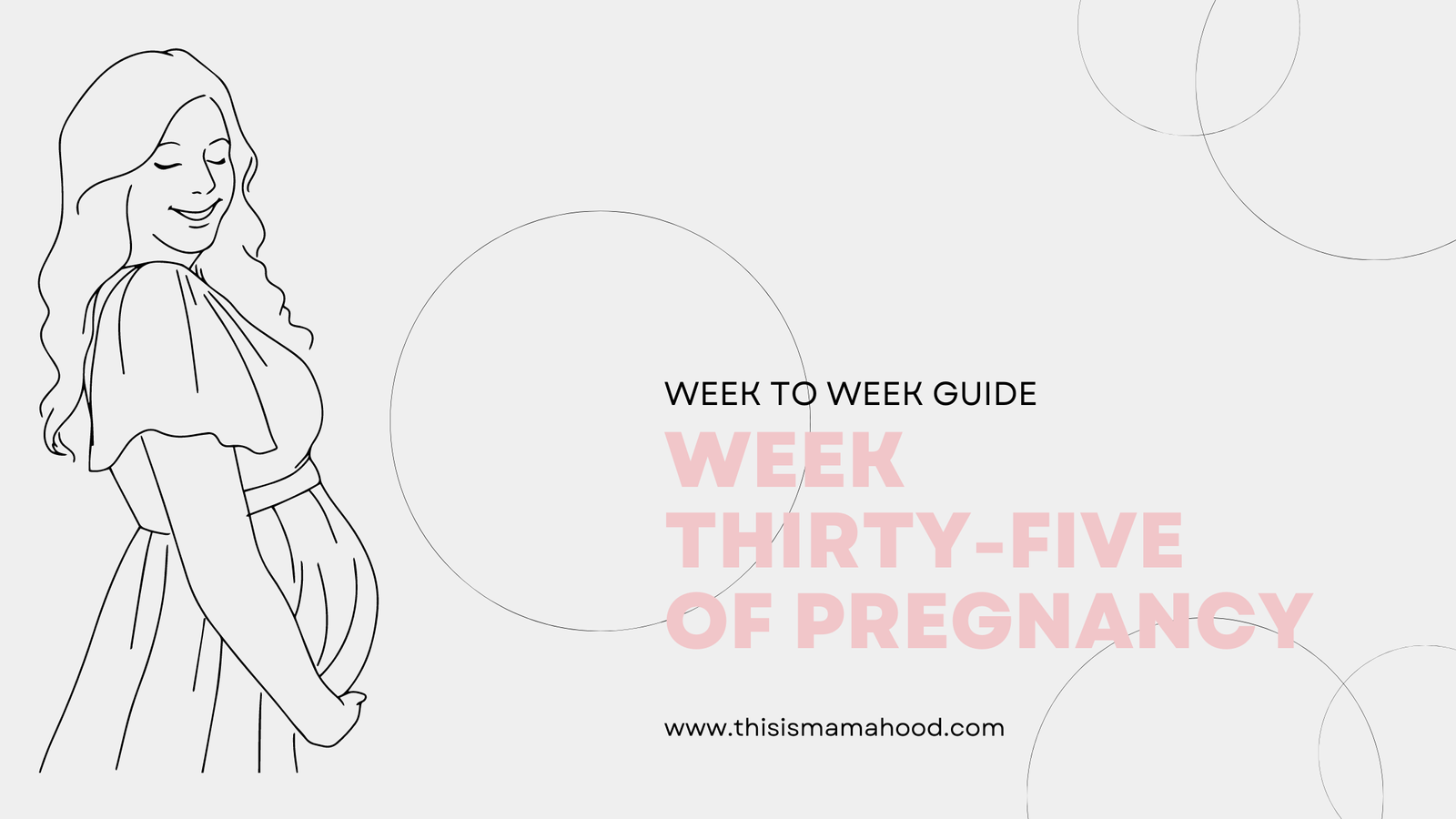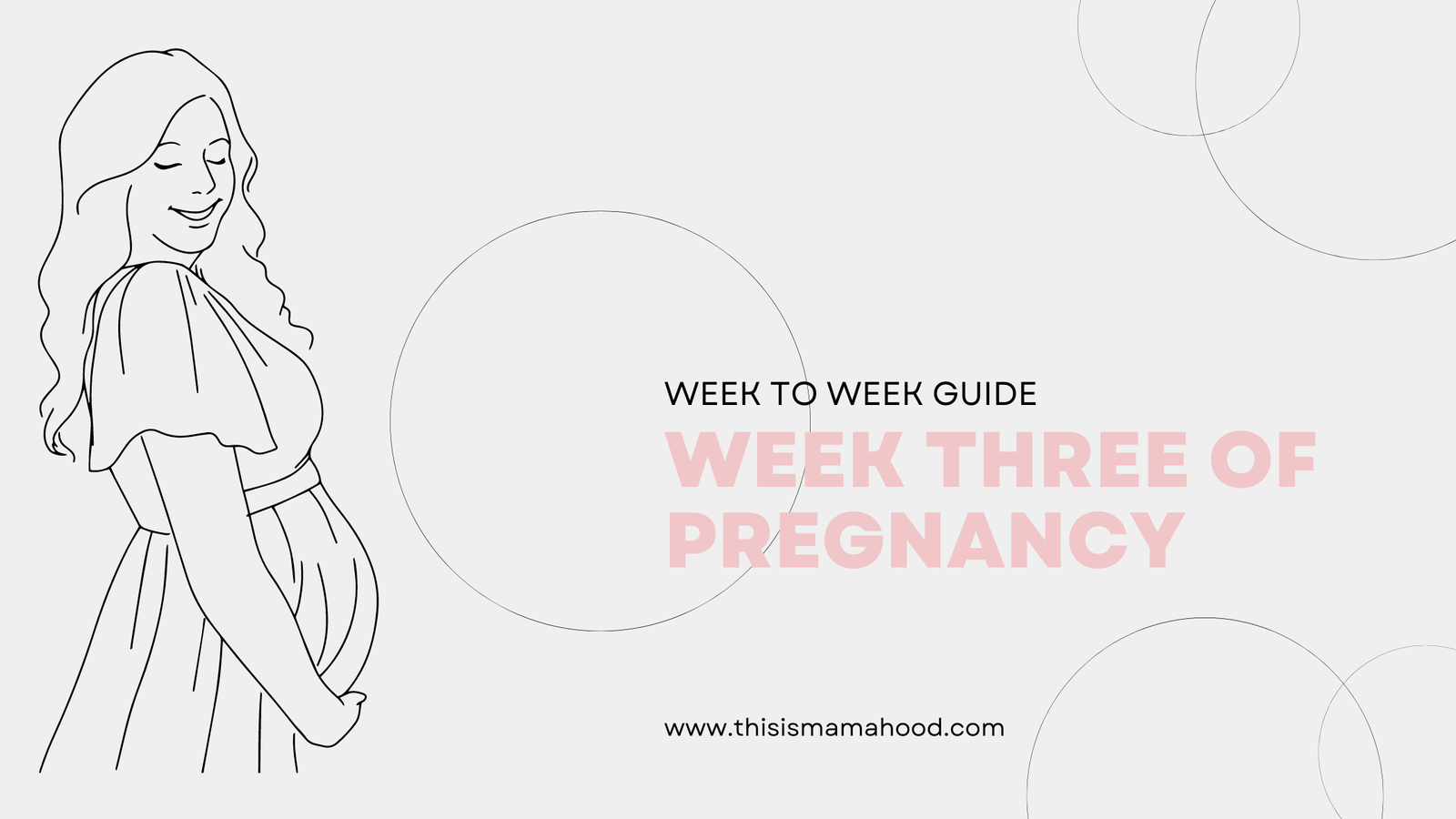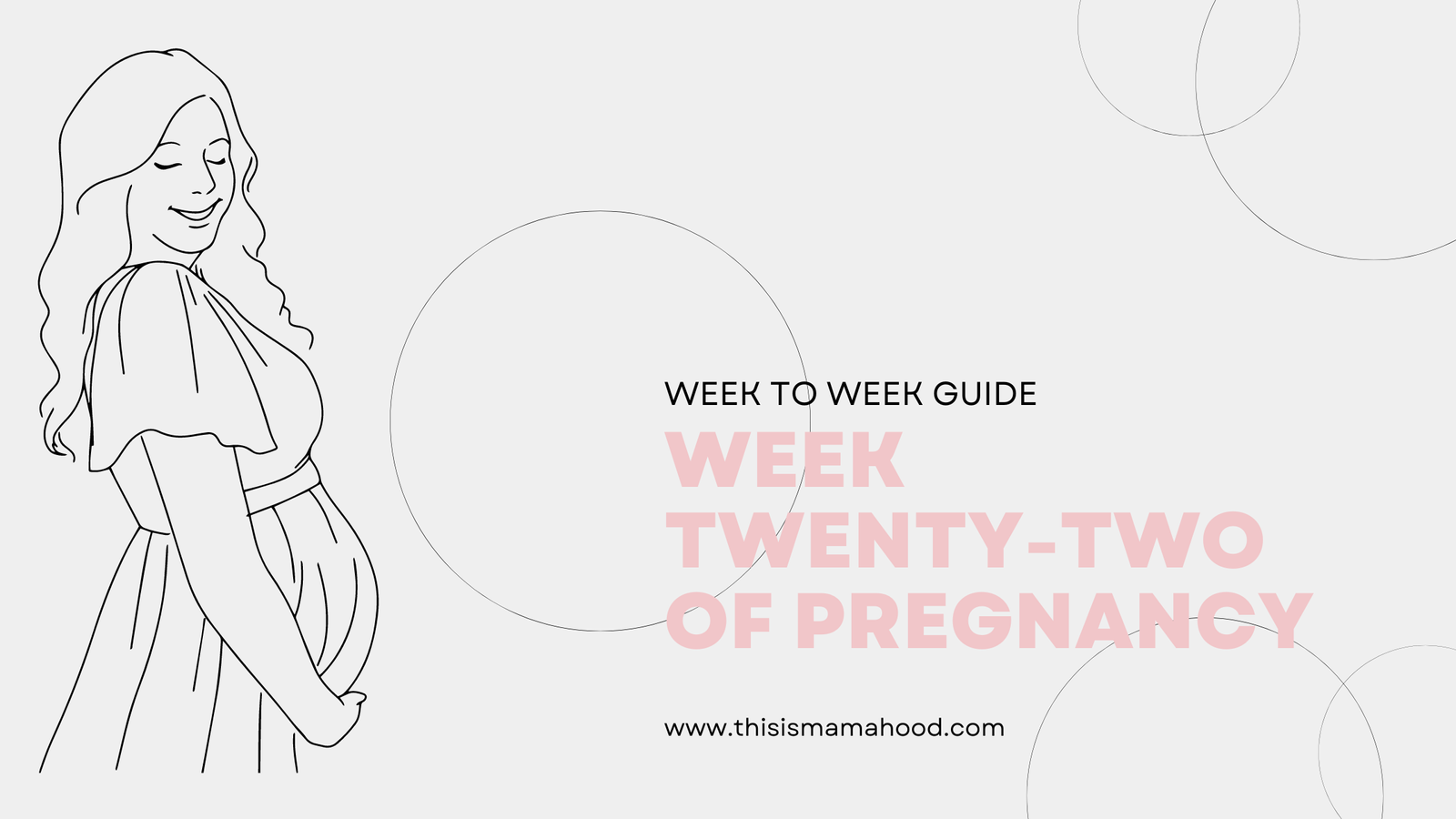Overview of Week 35 of pregnancy
During week 35 of pregnancy:
- Your baby is 18 inches long
- You are in trimester three
- 5 more weeks to go
- Kidneys are fully matured
Congratulations, you only have one more month left of pregnancy! By now, you are probably feeling pretty big and uncomfortable and can’t wait until your baby comes out. In this last month of pregnancy, make sure to slow down and try to enjoy being pregnant for the last bit. It’s difficult, but also try to get some sleep because once that baby is out, sleep will become rare for a while.
How many months pregnant is 35 weeks?
At 35 weeks pregnant, you are entering the last month of pregnancy. You are now 8 months pregnant and onto your ninth month. You are in the third trimester and only have one more month of pregnancy left.

How big is baby at 35 weeks pregnant?
Your baby is now around 18 inches long, from head to toe. Curled up in your uterus, your baby is about the size of a pineapple. As for weight, your little one weighs about 5 and 1/2 pounds by week 35 of pregnancy. Your baby is gaining about half a pound each week until birth.
Baby development during week 35 of pregnancy
Kidneys
Your baby’s kidneys have been in place for quite a while now; however, they are now fully matured. Those little kidneys are producing urine that your baby is releasing into the amniotic fluid.
Position
If your baby hasn’t already flipped into a head-first position, they should be doing so soon. They will also be making a drop lower into your pelvis to prepare for birth. This drop in your baby’s position should be a relief, as it will allow for less pressure on your lungs and your shortness of breath should lessen.

Pregnancy Week 35 Symptoms
Braxton-Hicks
Braxton-Hick contractions are false labor pains caused by the contraction of the uterus. They are not contractions that indicate that labor is coming; instead, they prepare your body for labor. Unlike labor contractions, these contractions come irregularly and do not increase in length or strength. They can feel uncomfortable and like mild menstrual cramps. If you have Braxton-Hicks that seem to worsen or don’t stop, check in with your doctor to make sure they are not real contractions.
Hemorrhoids
Hemorrhoids are swollen veins in your rectum and around your anus. During pregnancy, increased blood flow to the pelvic area, as well as increased pressure from the uterus, causes veins around your rectum to swell. Hemorrhoids can be uncomfortable and if you get them, it is best to avoid sitting for too long at a time, as sitting can cause extra pressure on the veins.
Swelling
Swelling in pregnancy is a normal symptom that usually starts in the second trimester and may worsen towards the end of pregnancy. Excess fluids in the body and pressure from your growing uterus can cause water retention in the feet, ankles, and hands. If you notice your fingers starting to swell, you should remove any rings until the swelling goes down. Let your doctor or midwife know if the swelling worsens or if there is a large amount in your face or around your eyes.
Trouble sleeping
With your growing belly, you may find it increasingly difficult to fall asleep. Your big belly will make getting into a comfortable position a tough task. Add in increasing heartburn and increasing movements from your baby and then sleeping will seem impossible. Make sure you have a comfy pregnancy pillow and avoid eating foods that aggravate heartburn.
Heartburn
Pregnancy hormones may allow the muscles in the esophagus to relax more frequently, allowing stomach acids to push back up into the esophagus. This is what causes the burning sensation in your chest, known as heartburn or acid reflux. Now that your baby and uterus are growing, there is also more pressure on your stomach which causes acids to be pushed further up. Over-the-counter medications, such as Tums or Rolaids, can help to reduce any discomfort. If any pain persists, it is best to talk to your doctor about other medications that may be available.
Pregnancy week 35 tips
Take pictures
Have you taken your weekly baby bump photo yet? These pictures will be a good memory to look back on and it is a fun way to show your belly growing throughout your pregnancy.
Finalize birth plan
Make sure that you have finalized your birth plan if you plan on having one. It should be written down and packed in your hospital bag. Your entire birthing team, as well as your partner, should be aware of what is in your birth plan. Make sure you have gone over everything with your doctor or midwife and confirm that they understand your wishes. Your partner should also be well versed with everything so that they can effectively advocate for you during labor.
Learn signs of labor
Labor could come at any time now; make sure you know the signs that your baby is coming. Talk to your doctor or midwife about symptoms of labor and when you should make your way to the hospital. Here are some common signs of upcoming labor:
- Losing your mucus plug
- Diarrhea
- Your water breaking
- Increasing contractions




